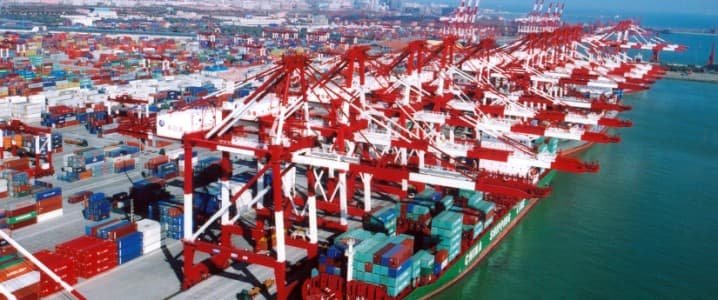By Alex Kimani – Jan 08, 2025, 4:30 PM CST
China’s foreign ministry says that it’s not aware of Shandong Port Group’s decision to ban U.S.-sanctioned vessels from its network of east coast harbours. The province of Shandong, is the main entry point for Iranian, Russian and Venezuelan oil imported into China, Reuters reports.
“As a matter of principle, I am not aware of the relevant situation,” the spokesperson said at a daily press conference cited by Reuters. “China has always firmly opposed the lack of international law on the part of the United States, illegal unilateral sanctions and long-arm jurisdiction without U.N. Security Council authorization,” they added.
Iran’s oil exports have started shrinking after a ramp-up in sanctions by the Biden administration froze some ships that deliver Iranian oil to China via ship-to-ship oil transfers off Malaysia and Singapore. China’s imports of Iranian crude oil and condensate dropped by 524,000 barrels per day (bpd) to a four-month low of 1.31 million bpd in November as the sanctions took effect.
This has triggered a spike in the price of Iranian crude: Discounts for Iranian Light crude against ICE Brent have narrowed to about $2.50 per barrel, versus discounts of $4 in early November. Discounts for Iranian Heavy crude have also narrowed to around $4-$5 a barrel from about $7 in early November.
“Tougher U.S. sanctions on tankers involved in Iranian oil flows have tightened shipping capacity,” Xu Muyu, a senior analyst at Kpler, wrote in a report.
Back in July, Trump promised in his Republican National Convention speech to reduce Iranian oil exports. He said he had previously achieved this objective by linking it to trade; “I told China and other countries, if you buy from Iran, we will not let you do any business in this country and we will put tariffs on every product you do send in of 100% or more.” According to StanChart, Iranian oil is likely to play a key role in Trump’s wider China trade policy agenda.
“A Trump victory may see the United States enforce sanctions against Iran, thereby reducing Iranian oil exports and prompting oil prices higher,” Vivek Dhar, a commodities strategist at Commonwealth Bank of Australia, said in a note.
By Alex Kimani for Oilprice.com
More Top Reads From Oilprice.com
- Chevron Targets $6-8 bln In Free Cash Flow Growth By 2026
- Trump Considers Executive Order to Protect Natural Gas Appliances
- Oil Demand Stays Strong Despite EV Surge
![]()
Alex Kimani
Alex Kimani is a veteran finance writer, investor, engineer and researcher for Safehaven.com.


